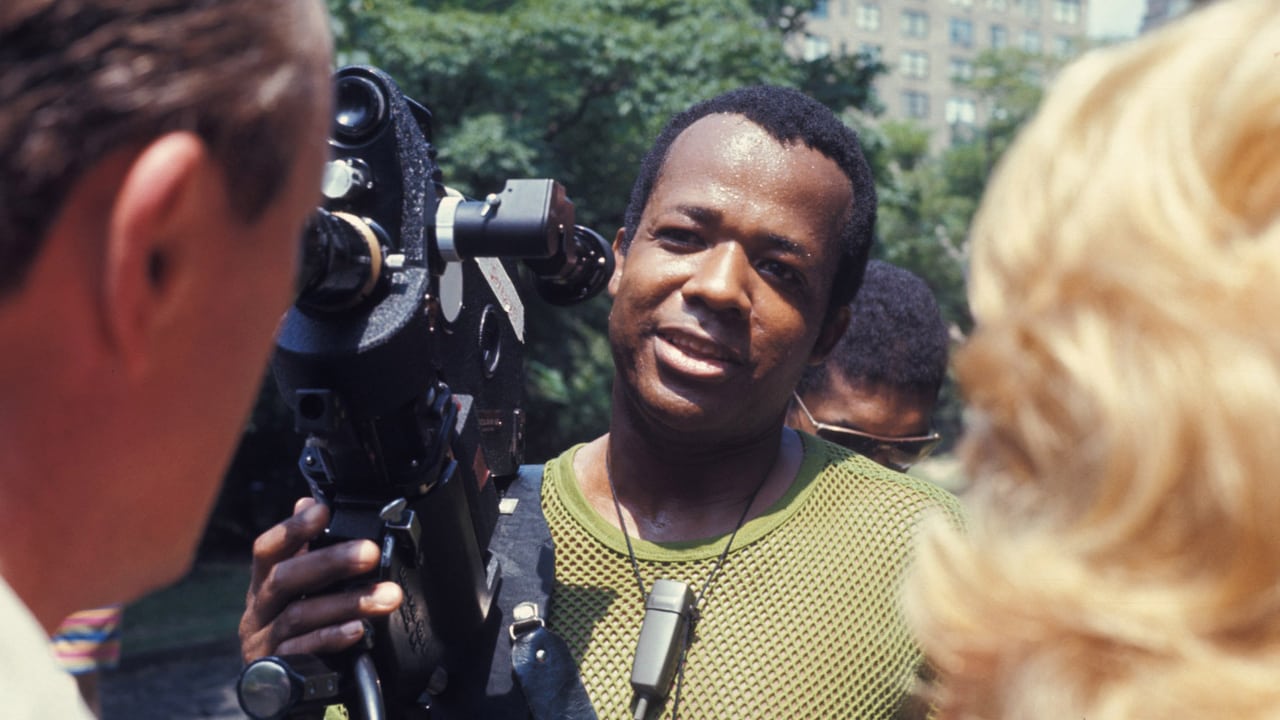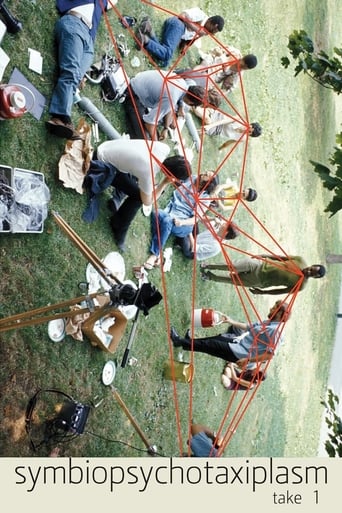

Symbiopsychotaxiplasm points the way toward so many later development in film. It manipulates reality by provoking the hapless cast, crew and bystanders to play roles by provoking them. The director of the film uses his own behavior as a Rorschach test. The whole genre of reality television as well as avant-garde documentary styles are anticipated in this film.In addition to its historical importance the film is fascinating on its own terms for anyone who likes to think about the nature of performance vs. reality. Gender, race, sexuality and the march of time also make appearances. Criterion has done its usual terrific job in rescuing this forgotten masterpiece from undeserved obscurity.
... View MoreHow important is the director, anyway? In this film, made in the politically tumultuous times of the late 60s where questions of social organization were prime conflicts, asks that question by making a movie that turns the camera away from the action and only begs to reveal the director, William Greaves. It is an important work, as it shows like no other movie shows the difficulties in blocking, organizing, and setting the scene; it reveals the role of the crew, something most directors frankly would like to disappear completely and that the invisibility of is essential for suspending disbelief; and it also puts into consideration the role of performance and scripting and how they match/don't match reality and what that has to say about how the director ultimately influences reality (if at all).The documentary, or pseudo-documentary, or fictional narrative (whichever you prefer, via your interpretations of the themes) has its brain in the over-educated, over-intellectual crew, its guts in the lost performers struggling to understand the vague and ambiguous directions, and its heart in the director, who stands in as the desire to portray, to represent, to express without any idea how to do any of those things or why he wants to do it. It's a film that purposefully repeats banalities just to see if they can become more than banalities. It's a film that sometimes shows the multiple shots simultaneously, just to leave the editing to the audience and also reveal how disturbingly different shots change perspective.It's an important work, and something that everyone interested in the industry and process of film-making should watch and understand. It, like many experimental films, has no real mass-audience appeal--it's not for them. It's for the industry, and its for the 60s, asking what to do with a group-effort medium that still relies on a single "voice" and "author".--PolarisDiB
... View MoreA film of high intelligence and activity. As well as being a strong capsule of the time and persona that was the 60's, the film is also TRULY a surprise in its forward-thinking themes and the unique presentation of the system of power in a group. William Greaves appoints himself to the authoritative role in the group. He asks his crew members to film and film and keep filming. First the two actors, then the crew filming the actors, then the entire set including bystanders, policemen, and finally a homeless man whose been living in bushes in Central Park for 9 weeks.Greaves edits the film (thousands of feet) together and surprisingly makes a strong narrative with an interesting arc and motivations. Don't expect to be bored by this film. Each of crew make for engaging conversationalists and often times are voicing the thoughts that the observer has watching this film. Greaves does well at integrating the multiple camera takes using synchronized three-in-one pictures and other attention shifting methods.In the end, the film will really only be effective if it's what YOU'RE looking for: if you're looking for some abstract arty film that feeds your own self-indulgent ego while never having a point, look elsewhere. If you're looking for a film that will have you talking and thinking long afterward about the desire for honesty and sincerity in documented "reality" and the inevitable transparency that comes of it, then this is the perfect film.
... View MoreIt would be hard to put a numerical rating on this movie, as it is essentially a movie created inside out, with the `action' being performed by the `actors' as the hard nut on the inside, and the more free-flowing production process as the body of the film this process being captured on several 35mm cameras rolling continually -- on the outside. Not to say there is nothing important about the `action,' which centers on an arguing couple in Central Park in fact, there is a certain anarchy of purpose in the two characters' criticism of each other (using pithy, well-worn movie expressions) that mirrors a knowing anarchy in the production loosely watched over by Greaves. The film is open-ended, suggesting that the production process will continue even after the `failure' of more than one pair of actors to claim their roles for themselves. There is something about Symbiopsychotaxiplasm that suggests failure, whether it's the suspicion of the crew that Greaves lacks direction, or the sort of floundering behavior of the actors when they are not reading their lines. But that too is part of Greaves vision. Early on in the film one of the production staff laments Greaves' opacity, saying that the director tends to answer questions with very vague statements that make one wish they hadn't asked the question in the first place. It is this mysteriousness within Greaves (`what is he doing?') that gives the film its skeleton, and makes it much more than simply a Happening in the Park.
... View More